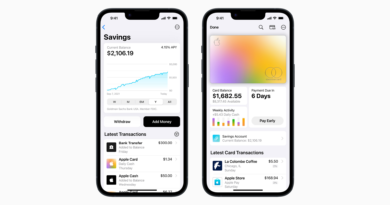Messina joins Ride Home Fund’s new $15M AI vehicle, backed by Andreessen, Dixon, Crowley
Tech veteran Chris Messina and writer/podcaster Brian McCullough are launching a new $15 million fund aimed at AI startups. The backers include tech luminary investors and founders such as Marc Andreessen, Chris Dixon, and Dennis Crowley, who are all investing personally.
McCullough has been running his Ride Home Fund for two years now, a fund which grew out of his hosting the Techmeme Ride Home podcast. Messina, formerly of Google, Uber, and a previous AI startup founder, is also famed as being the the inventor of the hashtag. Handily, he is also the number 1 product hunter on Product Hunt, which renders his ability to boost products fairly unique.
Over email, McCullough told me: “Not only has our inbound and deal flow switched to 90% AI, Chris was like: “The people coming off the bench right now are people that didn’t bite at crypto, didn’t bite at web3, but they’re going now and they’re people you would invest in whatever they’re doing next, by definition.”
He adds that given the layoffs at all the tech platforms, university graduates aren’t getting job offers from Big Tech companies any more, so they are punting for quick $100k to $500k checks to “just go with this AI idea” he says.
“It’s the best talent of the previous generation and the best talent of this generation pulling the trigger at the same time. It’s almost a perfect storm situation,” he added.
The fund plans to be the first check in at pre-seed or seed and deploy all its capital in the next 12-18 months.
The 506c fund and fundraising will close on October 31. As a 506c fund, any accredited investors can become LPs, so long as they can stump up the minimum $100,000 required.
Messina is finally jumping to the VC side of the table after being a prolific angel investor.
Over an email interview, I asked Messina how investors are going to avoid the pitfall of the current AI hype cycle, which may well pull them into over-valued companies?
“We believe this is a generational reset in how people use technology. Considering my experience building the social web, I see a similar shift now as I did back in 2005,” he said.
“Generative AI changes how software will be built and used — beyond what the iPhone started 16 years ago. It lead to generational software companies like Airbnb and Uber (where I worked), which applied new technological capabilities (GPS, payments, notifications) to alter how people understood and coordinated transportation and housing.”
“We’re similarly bullish that companies that we invest in now will have a similar lead in redefining calcified industries. We’re investing in the productization of generative AI by founders who come equipped with tactical knowledge of vertical spaces like compliance or do-it-yourself repairs (yes, we’re writing checks already),” he added.
However, given that the larger players in AI – the foundational platforms – are as big as they are, what will make it possible for small startups to compete against these leviathans?
“The opportunities we’re investing in are too small and bespoke for the big incumbents to focus on,” he told me. “They’re creating general purpose platforms that can’t, by definition, be too finely trained on any particular application space. Furthermore, designing the best experiences with generative AI requires deep knowledge of and empathy with customers from specific industries — both of which big tech companies typically lack (again, something I can speak to having worked at Google). They simply can’t move fast enough with sufficient product elegance to win the markets we believe are up for grabs,” he said.
I also asked him what hurdles AI investors face, given there are already things such as the blocking of AI crawler bots happening.
“We get people asking us all the time: where is the moat? Where will the value accrue? There are plenty of risks, but blocking AI crawler bots isn’t the top of that list. We think the people waiting for clear sailing are insane and will be kicking themselves in 18 months,” he added.
Given Messina’s quite pivotal role at so many successful tech companies in the past, perhaps this is the signal that the AI startup boom really has now kicked off?




